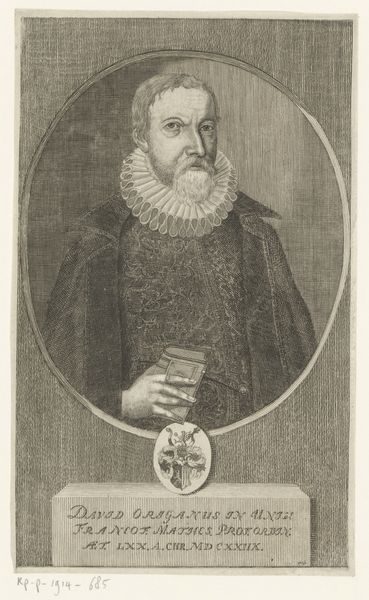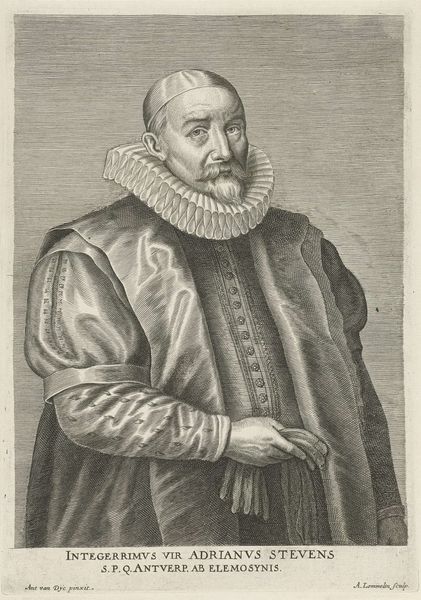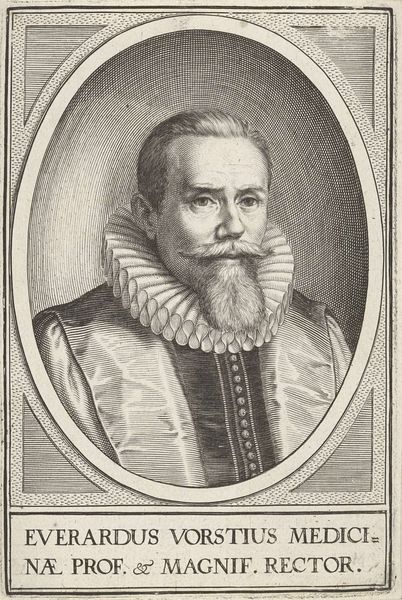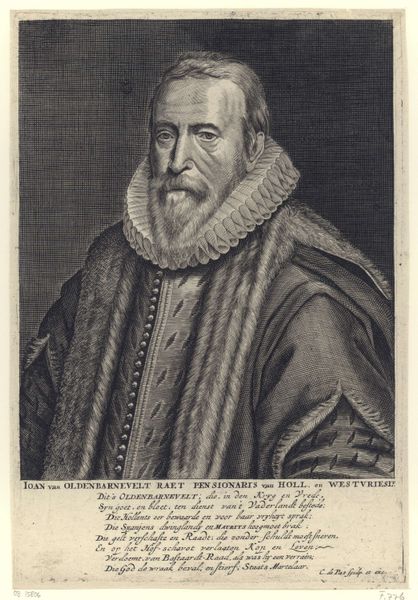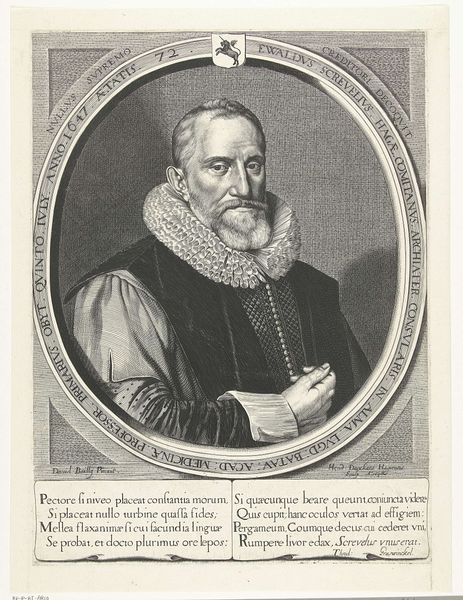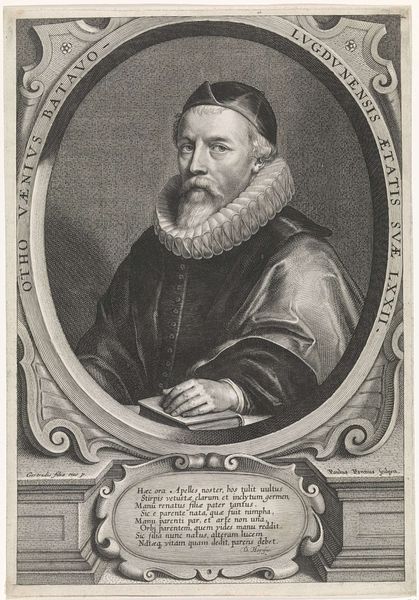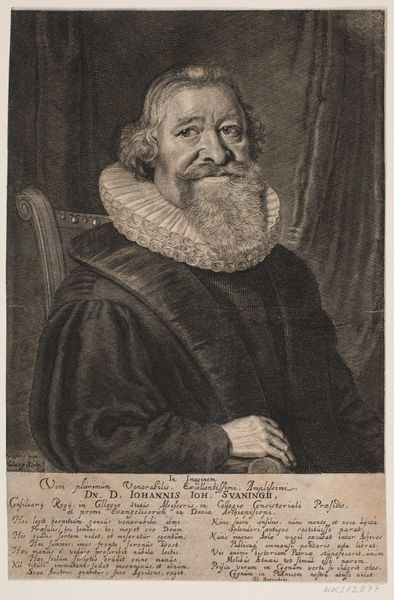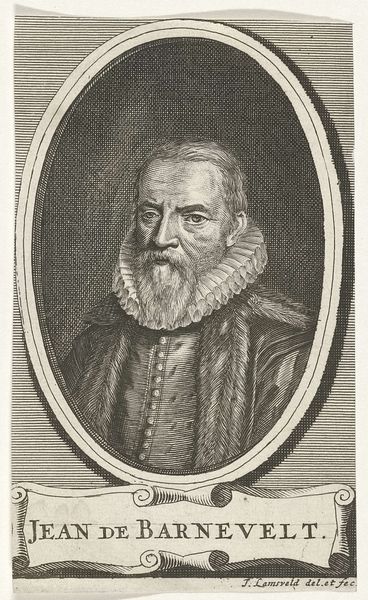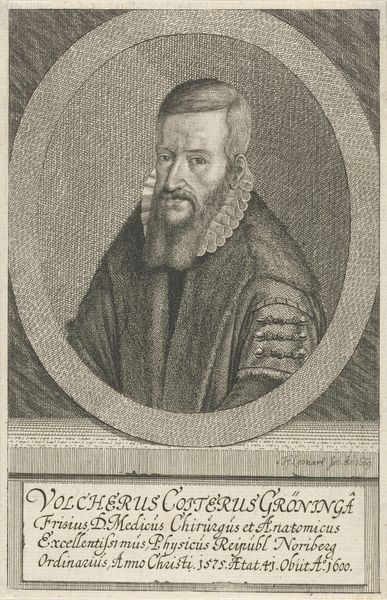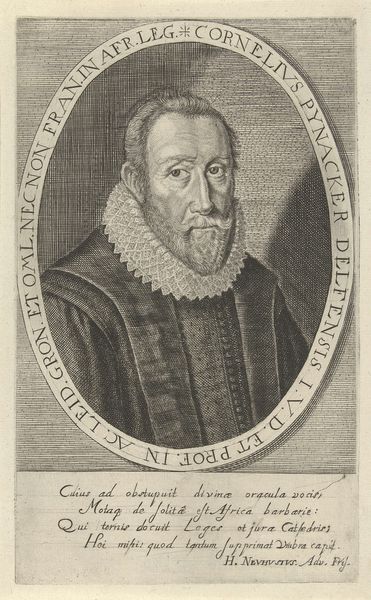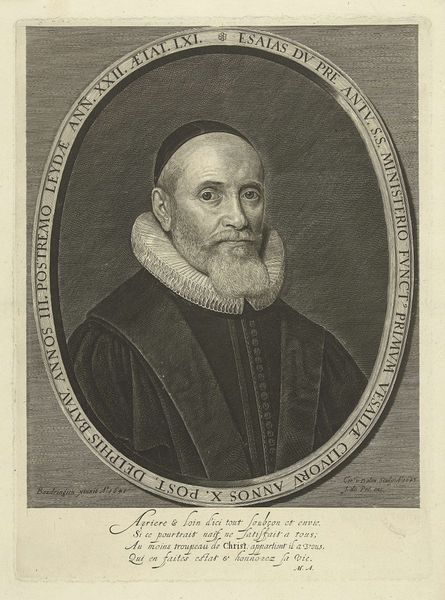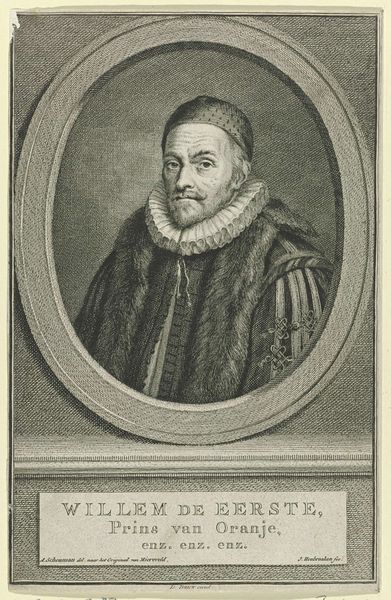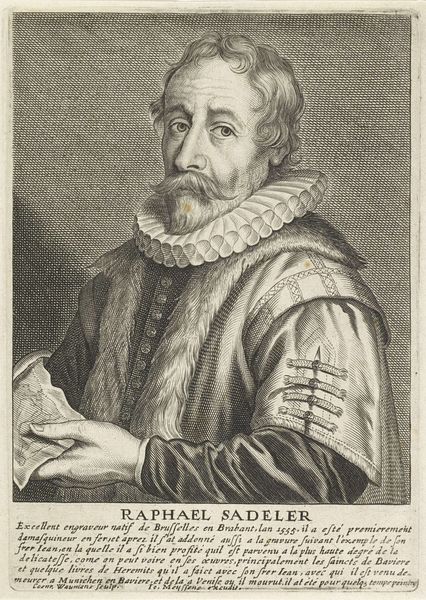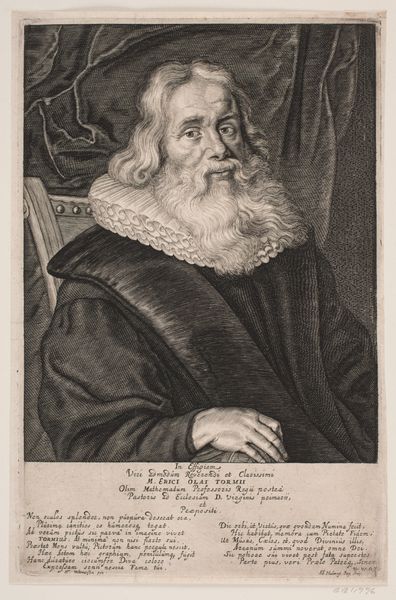
print, engraving
#
portrait
#
baroque
#
dutch-golden-age
# print
#
figuration
#
line
#
history-painting
#
engraving
#
portrait art
#
realism
Dimensions: height 160 mm, width 112 mm
Copyright: Rijks Museum: Open Domain
Egidius Rucholle made this print of Otto van Veen, and although it is undated, we can be confident it was made using an etching technique. Look closely, and you can see the network of fine lines that build up the image. The printing process begins with a metal plate covered in a waxy, acid-resistant coating. The artist scratches away the coating, exposing the metal beneath. This plate is then submerged in acid, which bites into the exposed lines. It’s an indirect process; the image comes about by controlled corrosion. In a way, this portrait presents a similar effect: Van Veen is shown as a gentleman and a scholar, but in a way that conveys the bite of social hierarchy. The very act of portraiture elevates him, yet the print medium itself, being relatively inexpensive, democratizes the image, making it widely available. This tension between exclusivity and access is key to understanding the social role of prints like these.
Comments
No comments
Be the first to comment and join the conversation on the ultimate creative platform.
